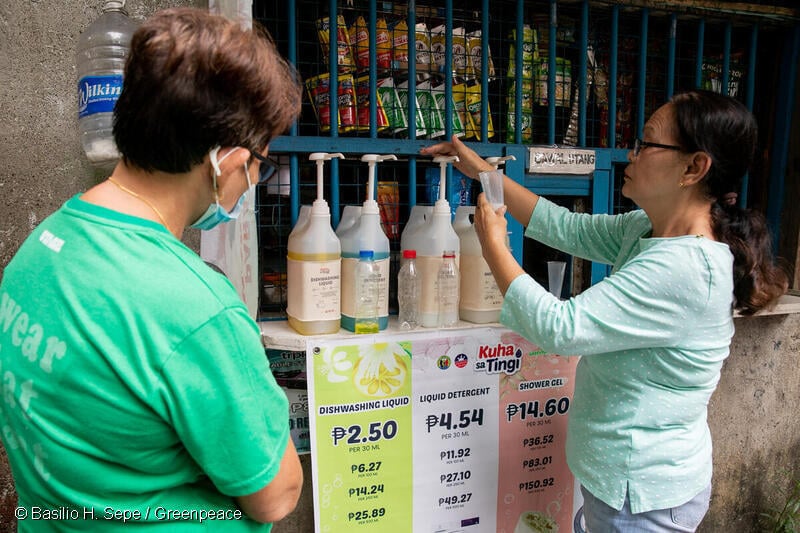JOIN THE REUSE REVOLUTION

The plastic crisis has reached an alarming scale and severity, exacerbated by the steady increase in plastic production in recent years. To address this pressing issue, it is imperative to develop impactful business models and distribution systems that reduce both the production and dependence on single-use plastic. Startlingly, the United Nations reports that approximately 36% of all plastic used worldwide goes into packaging, with about a third of those plastic packaging leaking into the environment.
Big corporations such as Coca-Cola, PepsiCo, Unilever, Nestle, Procter & Gamble, and Mondelez have a huge responsibility in tackling plastic pollution. These companies sell us goods packaged in plastics, leaving us with no choice but to dispose of the packaging. Compounding the problem, some of these corporations engage in false solutions or greenwashing that fail to address the root cause of plastic pollution. Additionally, over 90% of all plastics ever produced have not undergone recycling.
The good news is that there are already solutions to plastic pollution, and they are being initiated by communities around the world. These plastic-free alternatives work, and they can help us reduce our reliance on single-use plastics.
Recent studies show that a robust reuse system could cut plastic pollution by 30% by 2040. It is high time for corporations to redesign their business practices and adopt, scale up, or replicate these existing upstream solutions to genuinely break free from single-use plastics. Companies must invest in reuse models such as refilling and deposit systems while rejecting disposable plastics and other throwaway materials.
Join millions of individuals by adding your name to the growing demand for these big brands to stop producing single-use plastics and commit to achieving a 50% reuse and refill target by 2030. A plastic-free future is possible if we make reuse and refill a reality.
Tell the world’s biggest corporations to invest and transition to reuse and refill models and commit to 50% reuse and refill by 2030.
supporters have signed
signatures needed to reach goal of